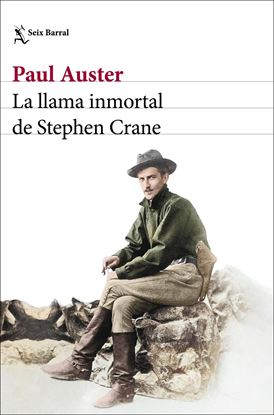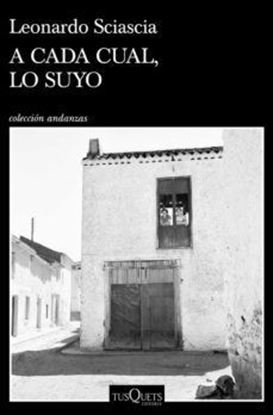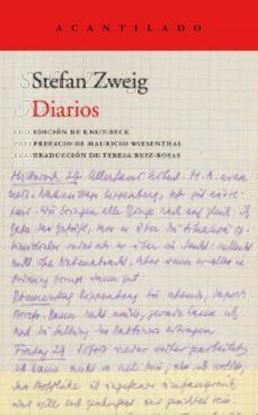

LA LLAMA INMORTAL DE STEPHEN CRANE
En esta apasionante biografía literaria de Stephen Crane (1871-1900), Paul Auster recrea la fascinante vida y la energía creativa del joven escritor, periodista y poeta que escribióLa roja insignia roja del valor en 1895. Crane solo vivió 29 años, pero en ese corto espacio de tiempo cultivó la novela, los cuentos, la poesía y fue un aventurado periodista que cubrió conflictos como la Guerra de Cuba. Conoció a Joseph Conrad y Henry James, que elogiaron su escritura, y con su obra cambió las letras estadounidenses para siempre.
En estas páginas, Auster ofrece, además, una ventana a la vida en Nueva York y Londres a finales del siglo XIX. Los años de Crane son también una época irrepetible en la que el país se prepara para dejar atrás la América del Salvaje Oeste para convertirse en la potencia capitalista que dominaría el mundo durante el siglo XX; una época de prosperidad que, sin embargo, esconde un pasado sin resolver marcado por el comercio de esclavos africanos y la matanza de indios nativos, y que tiene por delante los primeros movimientos sociales y las reivindicaciones sindicales.
1,650
1,320
EL PAIS DE LA CANELA (TRILOGIA NUEVO 2)
Premio Rómulo Gallegos 2009, El País de la Canela es la historia de una expedición fracasada, de la locura que se apoderó de aquellos conquistadores del Nuevo Mundo que deliraban a causa de las promesas de oro y opulencia.
"Fue en las terrazas saqueadas del Quzco donde Gonzalo Pizarro oyó por primera vez hablar del País de la Canelea. Él tenía como todos la esperanza de que hubiera canela en el Nuevo Mundo, y cuando oudo dio a probar a los indios bebidas con canela, para ver si la reconocían. [...] Se que los indios no pudieron haberle descrito todo con exactitud, porque las dificultades de comunicación eran muchas, pero Pizarro adivinó las arboledas rojas de árboles leñosos y perfumados, un país entero con toda la canela del mundo, la comarca más rica que alguien pudiera imaginar."
1,350
1,080
A CADA CUAL, LO SUYO (OF2)
Una brillante novela policiaca donde la Verdad mide sus fuerzas frente a los intereses de los poderosos.
Una aburrida tarde de agosto, el farmacéutico de un pequeño pueblo siciliano recibe un anónimo en el que le amenazan de muerte y al que, sin embargo, no da importancia. Pero, días después, el farmacéutico muere asesinado en el monte junto a otro respetable lugareño, el médico Roscio. Mientras los rumores que se desatan causan daños irreparables, y la policía y los carabineros dan palos de ciego, sólo Laurana, un anodino pero culto profesor de instituto, sigue una pista que tal vez conduzca hasta el asesino. Ha descubierto que el anónimo estaba confeccionado con palabras recortadas de un diario católico y conservador,L’Osservatore Romano, pues su logotipo,Unicuique suum–«A cada cual, lo suyo»–, figura en el reverso de los recortes. Y se lanza a hurgar en la vida de sus vecinos.
500
400
VERANO QUE VOLVIMOS A ALEGRANZA(OF2)
Atravesada por la memoria olfativa y bañada por la luz de Asturias, El verano que volvimos a Alegranza es una novela evocadora que nos recuerda que las buenas historias, igual que los buenos perfumes, siempre son necesarias.
Leandra es editora en una revista de moda con sede en Madrid. A sus treinta y cinco años se ha alejado de su marido, ha perdido la ilusión por su trabajo y ha presenciado la muerte de su tía Valentina en circunstancias dramáticas. En busca de respuestas a la crisis existencial en la que se halla inmersa, decide pasar un verano en Alegranza -la casa de indianos que construyó su abuelo Tomás en el pueblo asturiano de Colunga- y aceptar el reto de Jean-Luc Peltier, un prestigioso perfumista al que ha entrevistado: elaborar un perfume que la ayude a definirse a sí misma. Mientras bucea en sus recuerdos de infancia, impregnados de rosa silvestre, hortensia o madreselva, Leandra irá desvelando las distintas capas de secretos que, como los ingredientes de una fragancia, componen la historia de su familia.
300
240
LA NATURALEZA DE LA BESTIA (GAMACHE 11)
En La naturaleza de la bestia, la undécima entrega de la popular y aclamada serie dedicada a Armand Gamache, el ex inspector jefe de homicidios de la Sûreté du Québec debe abandonar su tranquila vida de jubilado en Three Pines para investigar la desaparición de un niño. El caso destapa una serie de sucesos que conducen a un asesinato y que, a su vez, nos guían hasta un antiguo crimen: a lo mejor el monstruo que hace veinticinco años llegó a Three Pines y sembró la desgracia entre la población ha regresado.
Con su maestría habitual, Penny aborda el lado más oscuro de la naturaleza humana a través del inexorable dilema moral que supone creer o no creer las fantasías del chico Laurent Lepage, a sabiendas de que la maldad anida incluso en los lugares más inesperados.
995
796
DIARIOS (ZWEIG)
Los diarios de Stefan Zweig comprenden cerca de treinta años de la vida del escritor, y por su espontaneidad son un documento irremplazable, además de un gran contrapunto a su autobiografía El mundo de ayer. Las páginas de este volumen, a menudo dictadas por la urgencia del momento pero tan lúcidas como sus textos más elaborados, nos descubren el día a día del escritor en Viena, París, Zúrich o Berna—donde cultivó la amistad de otros intelectuales, como Émile Verhaeren, Romain Rolland y Rainer Maria Rilke—, o la fascinación que le produjeron dos ciudades americanas como Nueva York y Río de Janeiro. Pero tambien nos revelan el íntimo horror que supuso para Zweig la Gran Guerra y, dos decadas despues, la deriva totalitaria y antisemita del continente y el ascenso del nazismo, que lo empujaron a buscar desesperadamente un refugio lejos del descorazonador hundimiento de Europa. Estos diarios nos brindan una vez más la voz del gran cronista del mundo de ayer, que en muchos momentos parece seguir revelándonos el de hoy y tal vez incluso el del mañana.
2,300
1,840














